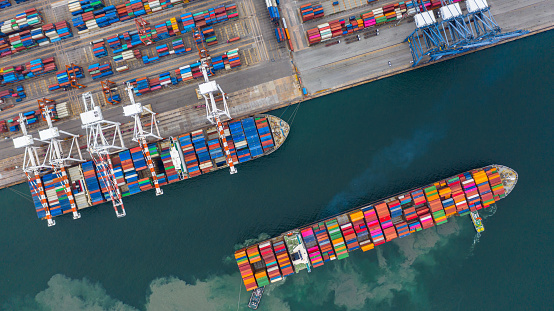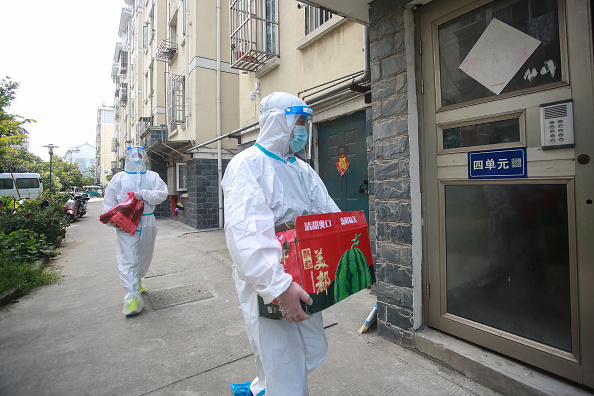
 Lowering Barriers
Lowering BarriersDozens of U.S. business organizations asked the Biden administration to resume trade negotiations with China, almost three years since former President Donald Trump began the U.S.-China trade war. In a letter addressed to U.S. Treasury Secretary Janet Yellen and U.S. Trade Representative Katherine Tai, nearly 30 U.S. business, agricultural, and industrial groups pushed the administration to roll back import taxes. Despite the two countries signing onto the Phase One agreement last January, Chinese domestic subsidies remain high while the U.S. has kept nearly $360 billion worth of tariffs on China.
"We strongly urge the administration to work with the Chinese government to increase purchases of U.S. goods through the remainder of 2021 and implement all structural commitments of the agreement before its two-year anniversary on Feb. 15, 2022," the letter read.
Meanwhile, China has issued new guidelines requiring state-owned companies to purchase more Chinese-produced goods. The guidelines set local content requirements from 25%-100% on over 300 items, including medical, agricultural, and geological equipment. A former U.S. official noted that the guidelines go against the Phase One agreement, adding, "They need to reduce barriers, not create new ones."
 Battling Delta
Battling DeltaChina and the U.S. alike are continuing the battle against the coronavirus with resurgences due to the Delta variant. After China successfully controlled the outbreak in 2020, the Delta variant has been spreading within its borders across multiple provinces. Vectors for transmission have been domestic tourism and public gatherings, and authorities are scrambling to enact quarantine measures via contact tracing. A smaller city in the Hunan province, Zhangjiajie, is experiencing lockdown measures reminiscent of the start of the pandemic, as residents and tourists alike are prevented from leaving their homes or the city. In Wuhan, Delta detection has prompted the immediate testing of all 11 million residents to control its spread.
The timing is not the best for China, as economic recovery has so far fallen beneath projected levels in 2021. Cautious consumer spending and a stagnant real estate market are some major causes of the slowdown. With more lockdown measures on the horizon, all industries could be impacted, which could mean China's economy could take a further hit in the latter half of the year.
 Making Waves
Making WavesThe U.S, France, Britain, and Germany have sent naval task forces to the South China Sea to counter China's territorial claims. The western nations are among those seeking to increase their military presence in the region. On Monday, Germany sent a warship to pass through the South China Sea within 12 nautical miles of China's coast for the first time in nearly two decades. China denied the last-minute request for Germany's naval vessel to dock in Shanghai on Tuesday for a "friendly stop-off," demanding clarity for the naval passage. Germany has maintained a sense of "strategic ambiguity" in its China policy, often stoking mistrust. India also sent warships into the South China Sea this week, which the navy said will be stationed there for two months and will partake in exercises with the U.S., Japan, and Australia.
As Washington continues to build up international support to counter China, Vice President Kamala Harris will make the South China Sea a large focus of her upcoming trip to Singapore and Vietnam this month. A U.S. official said she aims to expand security cooperation and strengthen U.S. leadership in the region, as the Biden administration sees both countries as critical partners. Meanwhile, U.S. Secretary of State Antony Blinken initiated a "strategic dialogue" with Indonesia this week to collaborate on multiple issues, including the defense of "freedom of navigation" in the South China Sea.
At the same time, Chinese State Councilor and Foreign Minister Wang Yi stated this week that China and ASEAN should begin a new age of cooperation, including on the South China Sea. Wang received support from the ASEAN foreign ministers, together calling for peace and stability to be maintained in the region.
Prepared by China-US Focus editorial teams in Hong Kong and New York, this weekly newsletter offers you snap shots of latest trends and developments emerging from China every week, while adding a dose of historical perspective.
- 2021-07-30 A Diplomatic Stalemate
- 2021-07-23 A Climate for Change
- 2021-07-16 The Trade Game
- 2021-07-09 Existential Threats
- 2021-07-01 Centenary Celebrations
- 2021-06-25 Critical Crossroads
- 2021-06-18 Part of the Club
- 2021-06-11 Retaliatory Legislation
- 2021-06-04 "Defanging" Diplomacy
- 2021-05-28 The End of an Era?
- 2021-05-21 One Step Forward, One Step Back
- 2021-05-14 Drifting Trade Ties
- 2021-05-07 Time to Talk
- 2021-04-30 Academic Pandemic
- 2021-04-23 Carbon Cutting
- 2021-04-16 A Hopeful Climate
- 2021-04-09 Technological Frontiers
- 2021-04-02 Back to Basics
- 2021-03-26 The Biden Era
- 2021-03-19 “A Strong Smell of Gunpowder and Drama”
